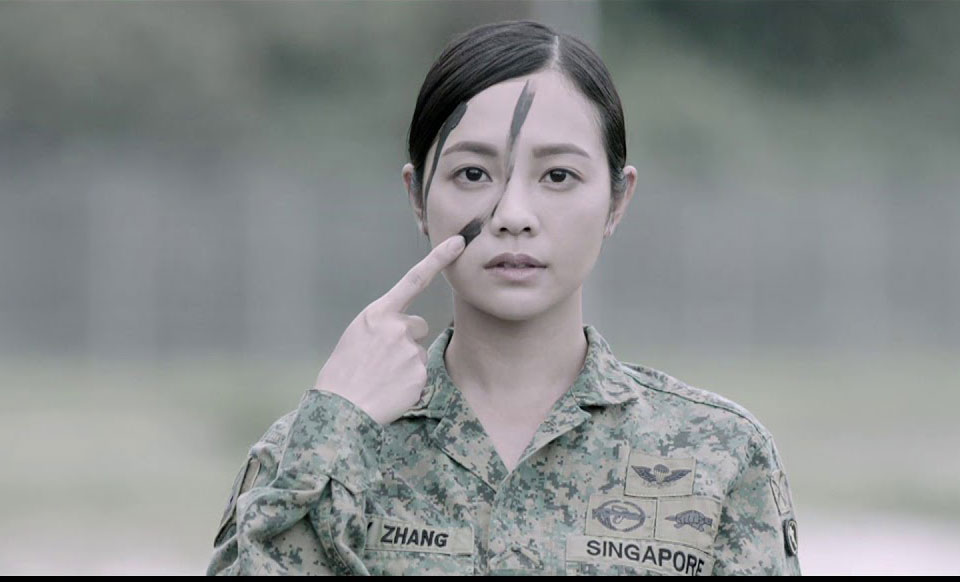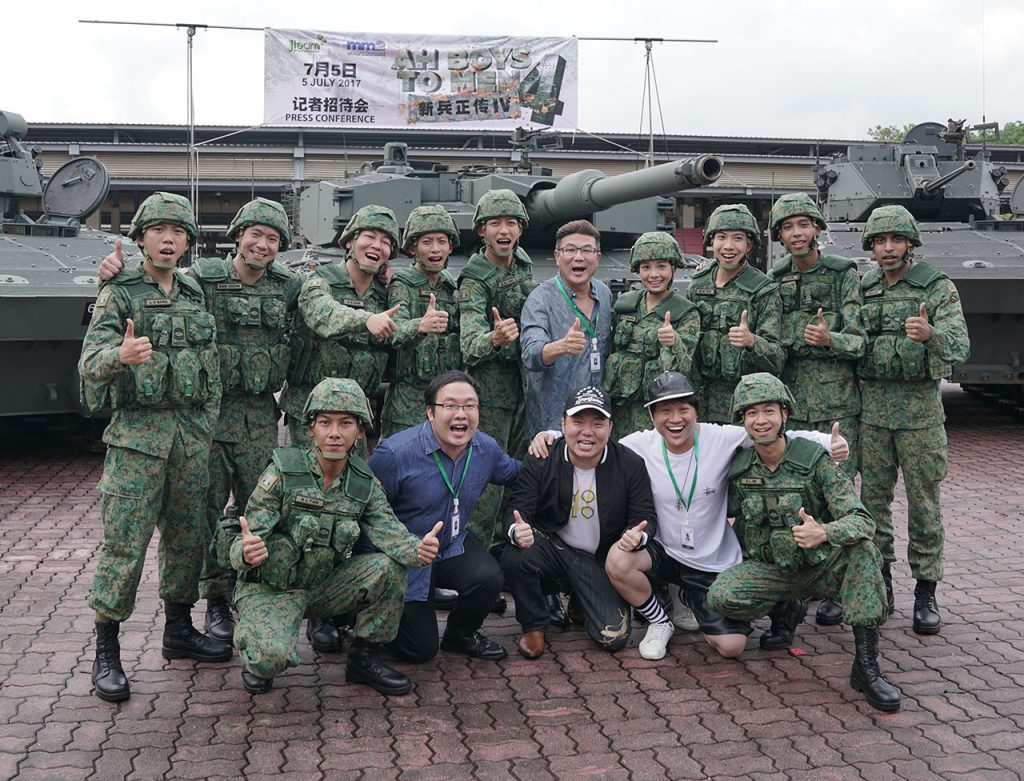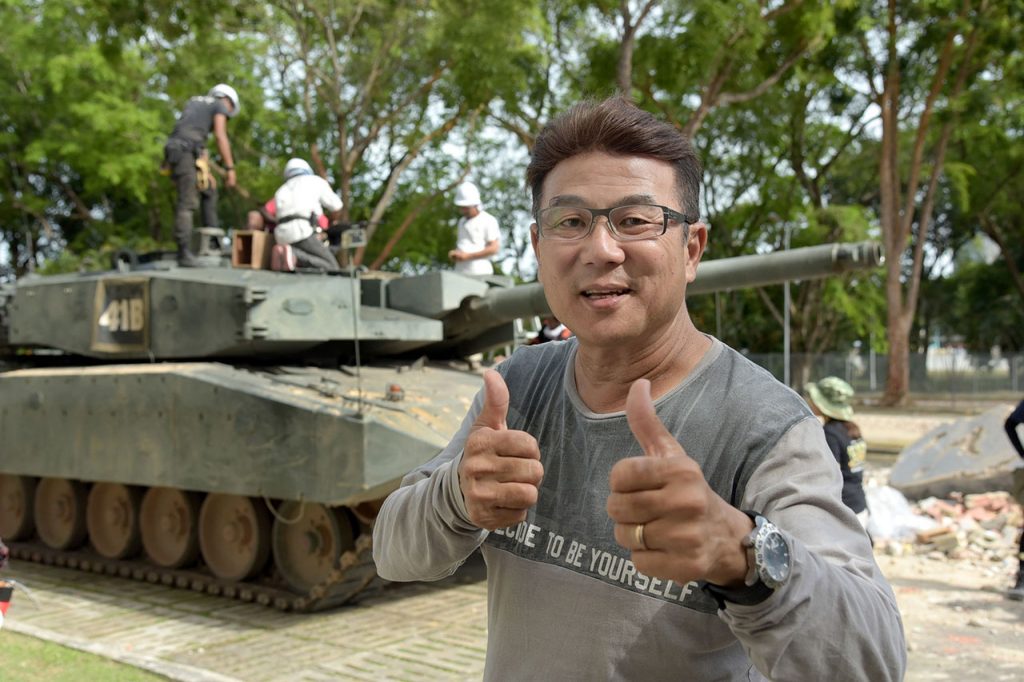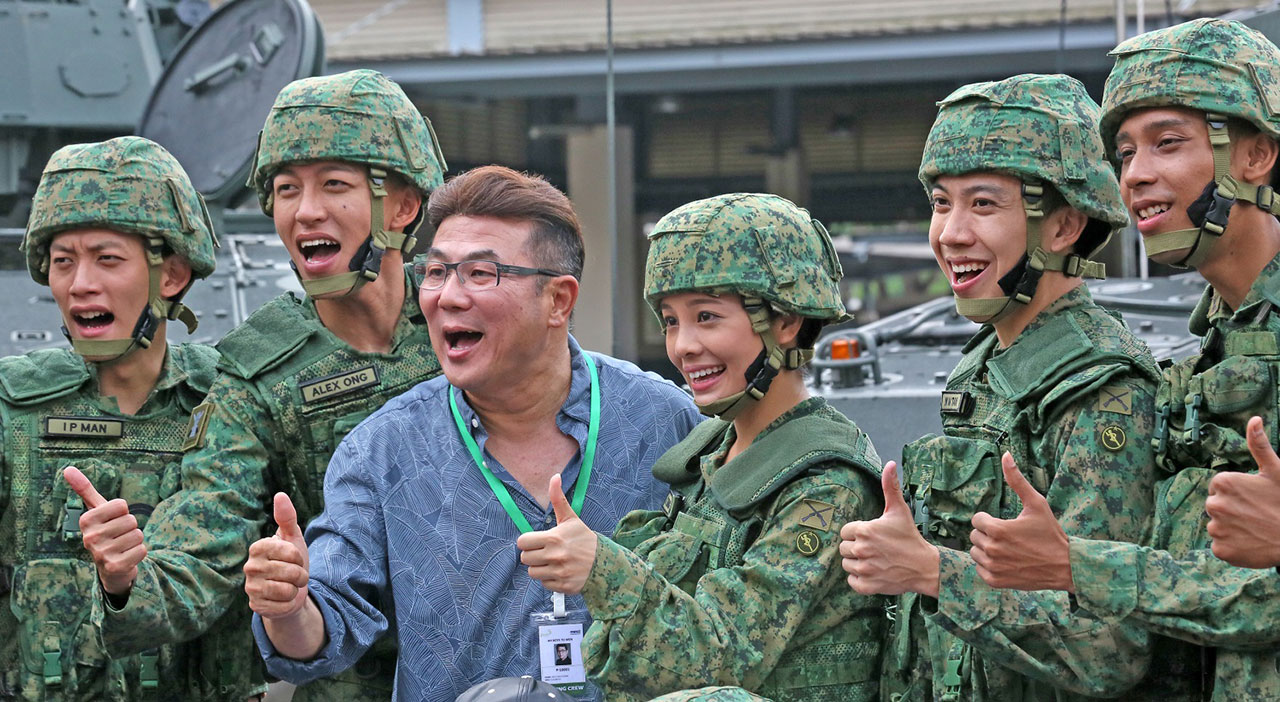When Singapore-Hong Kong actress Apple Chan was revealed to be the female lead of Ah Boys to Men 4, the Internet exploded with comments ranging from the contentious to the derogatory.
Having an attractive female soldier in the role of a military commander almost immediately triggered the sexists, the chauvinists and the ignorant who lurked on social media with their bigotry.
Now that I’ve actually watched Ah Boys to Men 4, I’m convinced that some of that Internet bile rubbed off on director Jack Neo and whoever else scripted the film.
The film is not just an insult to Singapore-made films – it is a sexist, childish mess that lurches incoherently from one plot point to another. Spoilers below, though I hope you read on so you decide to skip the film altogether.
Ah Boys to Men 4 sees the characters from the previous three Ah Boys to Men films serving their high-key In-Camp Training (ICT) in an armoured reservist unit. It’s this platoon’s fourth ICT and the soldiers are restless, complacent and rebellious.
They accidentally injure their commander after a training snafu, and are openly derisive towards their new commander, LTA Zhang Xinyi, played by the aforementioned Chan.

Never mind that the officer showed her toughness. It begs the question: is a commander who has to physically beat his or her charges to earn their respect a worthy one?
Maybe it looks cool, sexy even, to see an attractive woman deal some physical punishment to a guy, but the truth of the matter is military commanders do not get a free pass when it comes to assault on their men. Even outside of camp.
This scene is just one of many in the movie that simply stun and befuddle. Throughout the screening, I constantly asked myself how a bunch of males who are almost 30 could act exactly like the impulsive and immature recruits that they were in the first Ah Boys to Men film from five years ago.
It’s not just the infantile acting that is appalling. The writers seem to be stuck in the ‘90s, back when Singaporeans would still lap up Jack Neo’s brand of slapstick humour.
Valuable screen time is wasted on jokes that go nowhere, such as I P Man’s constant changing of his hair colour and inopportune farts from Aloysius (Maxi Lim). “Lobang King” (Wang Wei Liang) even has to break the fourth wall and remind (or perhaps implore) the audience that it is okay to laugh at a joke that just happened.
I appreciated the hint. There was only one problem – I didn’t find the joke the least bit funny.
Oddly, the characters also persistently reference running jokes from the previous Ah Boys to Men instalments even though this movie is obviously not in continuity.
A major part of the plot concerns LTA Zhang’s unorthodox way of disciplining her charges. Instead of a fine or confinement, she instructs delinquents to write 2,500 lines promising to repent for their offence.
The soldiers protest at the childishness of the punishment. LTA Zhang retorts that they deserve such a punishment since they behaved like children.
This is the crux of Ah Boys to Men 4’s failure.

In one preposterous scene, the soldiers in-training even threw excrement at their enemies.
All this was acceptable when you consider the protagonists were teenagers and newly-enlisted soldiers. They were raw and had lots to learn. They were the titular “ah boys” who would be transformed into men.
Three sequels on, the much-awaited evolution is nowhere to be seen. The protagonists still behave as though they are 20, and plot points are painfully juvenile and cliched.
In a jaw-dropping minutes-long sequence, a long line of supercars form up to pick up a soldier who had been mocked and made fun of due to his slight obesity and awkward personality; and they drive off while the protagonists gape like 20-year-old recruits – no, more like pimply teenagers.
The convoy of supercars was meticulously filmed in an exhaustive range of angles ala Top Gear. But without actually hitting the majestic notes characteristic of the famous motoring TV show, the scene just felt contrived and more like a filler.
I wondered what the producers saw behind the idea of a long line of supercars roaring outside Sungei Gedong camp.
Is it because expensive cars are simply cool to show off? Or is it because they are the wet dreams of car-obsessed young men, who may well be in the same demographic as those serving their National Service?
Or is it because it provides a delicious irony to the joke that the laughing stock of the platoon is actually a person with “prestige”?
At this point, I gave up on figuring out a logical reason. It’s one thing to act beneath your age – it’s another to equate cars with class.

The first few scenes of the film see the protagonists ogling at female soldiers and getting turned off when they are not the beauties the protagonists expected. When LTA Zhang is first introduced as the platoon’s trainer, the protagonists immediately refer to her openly as “Female Goddess”.
In a fantastical scene, the protagonists fantasise about frolicking in a pool with buxom ladies. The fantasy lingers on their bikini-clad bodies while sultry music plays.
Parents, this is the moment where you hush your young children and cover their eyes.
And it wouldn’t just be the feminazis who would revolt at both the term “Fat-rrari” (used to describe a woman waiting at a car park) and the portrayal of a sex-crazed woman who actually throws a condom packet at her boyfriend in frustration when he turns down her advances during dinner.
Anyone with any sense of decency would have found both these moments crude and extremely distasteful. Remember, these characters are supposed to be grown men with families. For example, “Lobang King” now has a wife and daughter. The “Fat-rrari”? That was his spouse.
It’s not just the infantile acting that is appalling. The writers seem to be stuck in the ‘90s, back when Singaporeans would still lap up Jack Neo’s brand of slapstick humour.
Ride in an armoured military vehicle? Name-drop ST Engineering, which manufactures first-class weapons and machinery. Wishing for a good time? Take a cruise on Royal Caribbean International. Thirsty? Gold Kili Kopi O or Chrysanthemum has you covered. Need a perk-me-up? Brand’s Chicken Essence gives you that and a little more. Ditto to shampoo, biscuits, coconut water and even Old Chang Kee.
It’s this overt product placement, scattered in conversations, sequences and camera shots throughout the film, that are consistently jarring.
Given the blatant monetisation of the film, I’m surprised that the soldiers did not feature sponsorship logos on their fatigues, or that Sergeant Ong did not wave a ST Engineering flag from his perch while commandeering an armoured vehicle.
One wonders if Jack Neo set out to make a film, or for one last shot at capitalising on what he must realise is his slowly fading relevance.





